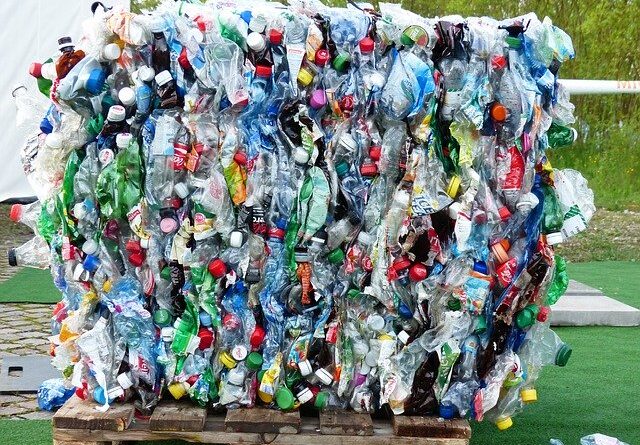Wishcycling
I learned a new term recently: “wishcycling.” “Wishcycling” happens when we don’t know whether or not to include something in a recycling bin (or we think it really should go there even if we know it doesn’t) and put it there anyway. I have certainly been guilty. Wanting to be a good steward of this earth, I “wishcycle,” hoping that whatever I place in the bin will in fact be recyclable. I think, “If not, well, no harm done.”
Unfortunately, “wishcycling” can do a lot of harm by contaminating otherwise recyclable goods—thus sending them to the landfill. “Wishcycling” can also break recycling equipment, slow down operations, create unsafe work conditions (especially when sharp or hazardous materials are involved), and increase the (already high) cost of recycling.
After reading a few articles, I offer what I have learned.
First, household recycling is not the last stop for a useful item, but the first “weed-out” for a successful recycling stream. We have to be honest and recognize that whatever we have used is headed for the landfill unless it meets rigid qualifications for recycling. If we really want to reduce what heads to the landfill, be stringent, not wishful, about what we recycle.
I have crossed-checked the list below with the City of Concord. These always go in the trash, or require special handling. They cannot just be dropped into recycling bins. (If you are reading this in another community, please check with them. Recycling guidelines are specific to the local area, so when traveling check their guidelines, or be willing to carry recyclables home.)
1. Plastic Bags: Soft plastic bags can clog machines and slow down operations while workers remove the bags by hand. Put recyclables directly in the recycling bin, never in plastic garbage bags which can get stuck in machinery. When shopping, bring your own reusable tote with you and eliminate the need for a plastic bag. Many grocery stores will recycle clean plastic bags, see Plastic Film Recycling for one near you.
2. Pizza Boxes (or any food stained items) and food residue: Cardboard used for food transport (pizza or take-out, for example) can be composted, as well as napkins and paper towels, but is not suitable for recycling. Boxes with a shiny interior are lined with plastic and cannot be recycled or composted. Food residue and liquids left in recyclable containers can contaminate an entire truckload of recyclables. Rinse containers and wash anything with greasy residue.
3. Gift Wrap with Foil: Shiny, metallic wrapping paper and decorative ribbons do not recycle, glittery cards are also non-recyclable and can contaminate an entire bin of paper. Test your gift wrap: ball it up. If it stays bunched up, it’s most likely recyclable. If not, re-use it or put it in the trash can.
4. Small metal bits: Yikes! While bits of metal, like soda can tabs and aluminum candy wrappers, are technically recyclable, their small size makes them hard to detect and they often jam recycling machinery. Keep soda tabs attached to the can or drop them inside the can. The City of Concord does not recycle aluminum foil.
5. Receipts: While thermal cash register receipts are made from paper, they also contain Bisphenol A, aka BPA, which contaminates paper recycling. Trash them.
6. Electronics: These require special handling, same for batteries and CFL lights. Please take them to the Cabarrus County Hazardous Waste Facility or other specialty facility.
7. Household glassware or broken plates, dishes, mirrors, wine glasses, etc: Each of these has a different melting point and cannot be recycled with recyclable glass containers. If it can be reused, then donate it. Otherwise, into the trash it goes.
8. Diapers: Nope. If your diapers say compostable, they do not go into the recycling container. Compostable is not recyclable. Same goes for feminine hygiene products.
9. Shredded Paper: Again, while shredded documents and small bits of paper are paper, they too small. They fall through the cracks in machinery and can even clog equipment. Good news: shredded paper can be composted!
10. Coffee Cups/Paperboard Boxes: Most to-go coffee cups are lined with a plastic film that makes them liquid proof, difficult to recycle and not compostable. Same for freezer boxes, ice cream cartons and milk/juice cartons. Shelf stable cartons (rectangular boxes) contain aluminum layers as well plastic layers, so they don’t recycle, either.
11. Tanglers: Even if made from recyclable material, cords, hoses, wires, etc. can get caught in machinery and bring the whole recycling operation to a halt. Metal tanglers may be acceptable to scrap metal companies, but you have to get them there yourself.
Municipalities plead with customers – “when in doubt, throw it out” – in other words, no more “wishcycling.” We need to know that what we put into the recycling bin actually goes there in order for recycling efforts to be successful. Then we not merely hoping, but are truly caring for God’s creation.
Blessings,
Nancy+

